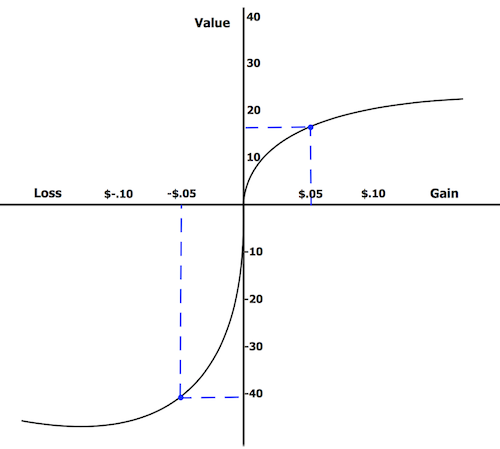The Mental Accountant

(This article first appeared in Founding Fuel)
The tax season just went by with millions of taxpayers filing their tax returns. Some will end up paying more tax to the government than their due, and this amount will later be refunded. Do you remember the feeling when the tax refund hits your bank? It is like there is free money to spend.
I have a friend who invests in startups. Last year one of his companies got acquired and he made phenomenal returns. However, another startup investment of his, that I know of, is not going anywhere. My friend is upset that he is about to lose his money in this company. The fact is that he has made over 20x more money in the first startup than what he would lose in the second.
What is happening ? How can our mind be fooled like this?
The "mental accounting" bias
It seems our mind is wired to think of money in different buckets. For each saving, spending or investment, our mind automatically opens a new mental account or ledger. Each such ledger is accounted for and tracked separately, rather than netting it with other accounts.
The tax refund money feels free because in our mind we have already paid the tax and closed that ledger.

This bias is called "mental accounting" and was first articulated by the economist Richard Thaler, who won a Nobel prize in 2017 for this discovery.
Consider an investor who starts with a financial investment of the exact same amount in two separate funds. Which scenario below would make the investor happier?
The first scenario is clearly more profitable than the second. But, that is not how our mind is wired to think. Since the monies are placed in two separate funds, our mind mentally creates two separate ledgers/ placeholders for these funds. The bias is that our mind wishes to evaluate each fund individually rather than netting the profit of one fund with the loss of the other.
Ironically, in the above example, our mental accountant is happier in the second scenario when both funds are individually in the green, even if the total returns are lesser!
Related: "Loss aversion" bias
It is not just that we open different mental ledgers for different heads, but we have a desperate need to be positive in each of the mental ledgers. Our mental accountant is averse to losses of any kind.
It was Daniel Kahneman and Amos Tversky who first proposed that consumers value gains and losses differently. The same amount of loss has a disproportionate effect on us than a similar gain. We are naturally averse to losses.

You look at your portfolio on a given day, and see a nice total gain. But, upon drilling into the gainers and losers, you find that one investment is sharply down. This losing investment creates a sharper pang than the overall gain. Effectively, the happiness derived from the total gain is significantly eroded. Loss aversion has spoiled the moment.
The above portfolio is actually up, but that one large losing position is difficult to digest for the mind. The mere presence of the color red creates a cognitive overload. It is loss-aversion at play.
What explains this mental wiring?
It is the premise of evolutionary theory that none of our traits and behaviors are incidental. The sheer presence of a trait is evidence that it must have helped our ancestors in their survival and hence was selected by natural selection.
The fact that we do mental accounting must certainly have been useful to our ancestors. As early humans evolved millions of years ago, it must have become gradually important to remember interactions with each and every person in the group to be able to reciprocate suitably. The ones who could do this would possibly survive better.
To play the reciprocity game, [humans] need to recognize each other, remember who repaid a favour and who did not, and bear the debt or the grudge accordingly.
Cognitively, our minds developed to open a separate mental ledger for each person. But the moment it comes to money, our old mammalian minds are confused. Unlike people, money is fungible i.e. the money from one source is the same as the money from another. The money kept for a vacation is the same as the money saved for education. The money invested in one investment is of the same color as the money invested in another.
But, our minds are naturally wired to create a new ledger for each and every spending, investment, stock, fund – and we like to evaluate each of them in their own silo.
Our minds are fundamentally incapable of absorbing abstract concepts like money and compound interest, because our ancestors did not encounter these problems in the past.
How does this affect investing?
With a combination of Mental Accounting and Loss Aversion, we have a desperate need to be positive in each of our mental accounts.
This means that when we are selling investments to raise cash, we are far more prone to sell the winners instead of the losers. Selling a loser is unacceptable to our mental accountant. This may explain this famous quote.
Selling your winners and holding your losers is like cutting the flowers and watering the weeds.
Many years back, I was sold Nifty-linked debentures by my relationship manager. These are instruments which offer the upside of the equity index while having 100% capital-protection. Who likes to invest in the capital markets and see the red color? I made average returns after 3 years, but no losses ever, right? Another instance of our innate loss-aversion exploited by a marketeer. That's why Caveat Emptor. Buyer Beware.
How can we defend ourselves?
Understanding a mental bias does not mean that we suddenly become immune to it. However, being aware of our mental flaw, we can try to construct possible defence mechanisms to counter the negative consequences of these biases.
| Flawed decision | Defence strategy |
| When selling stocks, we tend to sell the winners instead of losers |
|
| Looking at portfolio, we are prone to focus on the negative | Do not look at the portfolio constituents everyday!! |
| When buying a new stock, we tend to under-invest | When considering making a new investment, think of the total size of the portfolio pie and accord a suitable weight to the new investment. For more, see position sizing. |
| We naturally gravitate to products that promise capital protection | Marketeers exploit our deep aversion to losses to offer attractive "capital-protection" schemes, which offer upside without ever losing the principal capital. Remember that every investor can create their own capital protection scheme. For Rs 100, keep 90 in a safe investment and invest the balance Rs 10 in a highly risky security (or derivatives!) to achieve the same effect. |
| We are suckers for buying ULIP and thematic insurance | Insurance has always been sold in India mixed with investment. When selling a child education plan, the marketeer is exploiting our mental accounting buckets. We are always better-off investing in a long-term mutual fund minus the insurance. For life insurance, simply buy a term-plan and nothing else. |

Member discussion